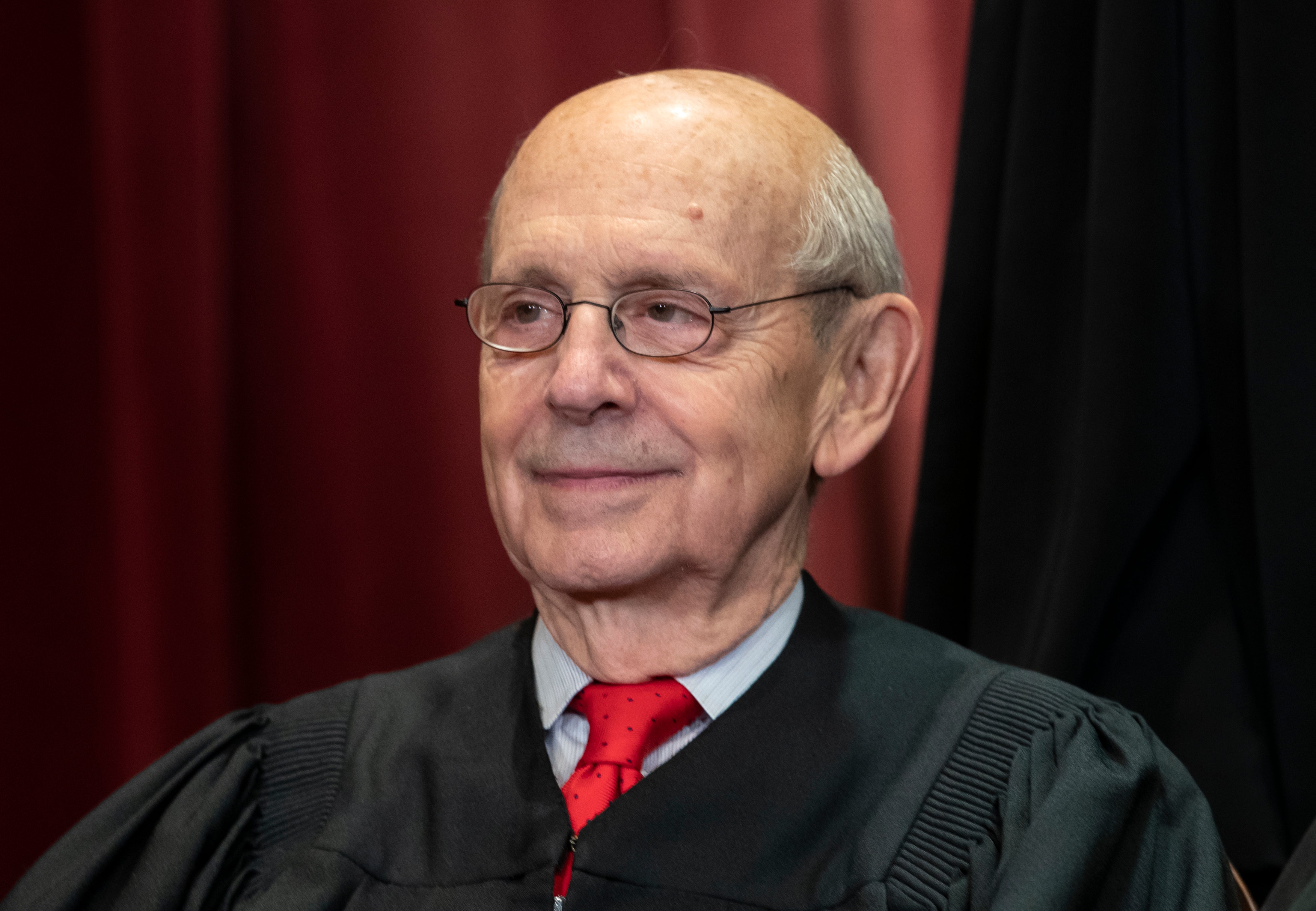Breyer mum as some liberals urge him to quit Supreme Court
Progressives are hoping 82-year-old Justice Stephen Breyer retires soon to allow President Joe Biden to appoint a like-minded successor while Democrats control the White House and Senate

Forgive progressives who aren't looking forward to the sequel of their personal “Nightmare on First Street," a Supreme Court succession story.
The original followed Justice Ruth Bader Ginsburg's decision to forgo retirement from the high court, located on First Street in Washington, when Democrats controlled the White House and the Senate during six years of Barack Obama's presidency, until 2015.
Despite some pointed warnings of what might happen, Ginsburg remained on the bench until her death last year at age 87. President Donald Trump replaced the liberal icon with a young conservative, Justice Amy Coney Barrett and cemented a 6-3 conservative majority on the court just over a month before he lost his bid for a second term.
In the updated version, 82-year-old Justice Stephen Breyer plays the leading role. He is the oldest member of the court and has served more than 26 years since his appointment by President Bill Clinton.
With spring comes the start of the period in which many justices have announced their retirement. Some progressives say it is time for Breyer to go, without delay. Other liberal voices have said Breyer should retire when the court finishes its work for the term, usually by early summer.
“He should announce his retirement immediately, effective upon the confirmation of his successor,” University of Colorado law professor Paul Campos wrote in The New York Times on Monday.
Campos' plea stems from the Democrats' tenuous hold on power.
A Democrat, President Joe Biden, lives in the White House and his party runs the evenly divided Senate only because the tie-breaking 51st vote belongs to Vice President Kamala Harris.
But there is no margin for a senator's death or incapacitating illness that could instantly flip control to Republicans Campos noted that the party composition of the Senate has changed more often than not in each two-year session of Congress since the end of World War II.
Breyer has remained mum about his plans, at least publicly. His last comment on the topic of retirement was made to Slate's Dahlia Lithwick in an interview published in December. “I mean, eventually I’ll retire, sure I will,” Breyer said. "And it’s hard to know exactly when.”
The justice, through a court spokeswoman, declined to comment for this story. Breyer's predecessors have tended to time their retirements so that they can be replaced by justices with similar views of the law.
Some of those who asked Ginsburg to retire also said Breyer, five years younger than Ginsburg, should have contemplated quitting, too.
Biden already has pledged to name the first Black woman to the court, if he gets the chance. Among the names being circulated are California Supreme Court Justice Leondra Kruger, U.S. District Court Judge Ketanji Brown Jackson and U.S. District Court Judge Michelle Childs. She is a favorite of Rep. James Clyburn, D-S.C., who made a crucial endorsement of Biden just before the state's presidential primary last year.
Breyer could announce his plans at any time, or say nothing and remain on the court. Justices Harry Blackmun, David Souter and John Paul Stevens announced their plans in April or May. Justices Anthony Kennedy and Sandra Day O'Connor waited until early summer.
Breyer's departure wouldn't do anything to change the conservatives' 6-3 edge on the Supreme Court. Republicans firmed up and expanded conservative control of the court during Trump's presidency.
First, they refused to consider Obama's nomination of Merrick Garland, after Justice Antonin Scalia died in 2016. Trump picked Justice Neil Gorsuch, 53, for the seat less than two weeks after he took office. Kennedy's retirement in 2018 and Ginsburg's death in September led to pitched confirmation battles that ended with Justice Brett Kavanaugh, 56, and Barrett, 49, on the court.
But while the ideological makeup would stay the same, Breyer's retirement would allow Biden to rejuvenate the liberal side of the court, where Justice Sonia Sotomayor is 66 and Justice Elena Kagan is 60.
If Breyer steps down, Clarence Thomas, 72, would be the court's oldest justice.
Ginsburg maintained a steely, though ultimately mistaken, confidence that Democrats would retain the White House in 2016. She also doubted that Democrats could confirm someone as progressive as she was under existing rules that allowed the minority party to block, or at least delay, Supreme Court nominations.
“So who do you think could be nominated now that would get through the Senate that you would rather see on the court than me?” Ginsburg asked rhetorically in an interview with The Associated Press in August 2014.
Republicans changed those rules in 2017 to prevent a Democratic filibuster of Gorsuch's nomination.
But in private, Ginsburg did seek advice about what she should do, Ohio State University law professor Deborah Merritt said Monday in an online commemoration of what would have been Ginsburg's 88th birthday.
Ginsburg asked Merritt, her onetime law clerk, what she thought about people suggesting she retire while Obama still held office "just in case the next president is not a Democrat,” Merritt said.
“Who the next president is, is our job, not your job. I think you should stay on the court as long as you can feel capable to do your job. The rest of us will do our job,” Merritt recalled telling the justice in a conversation in 2015.
Law clerks are perhaps the least likely people to tell judges they once served that it's time to retire.
The topic provokes equally strong reactions from people who say it's presumptuous to ask a justice to step down for political reasons and those who say it's naive to do otherwise.
Bookmark popover
Removed from bookmarks